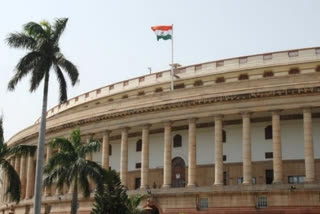New Delhi: India’s bicameral Parliament, that represents the world largest democracy, may not hold the crucial winter session this year as some members are reluctant to come to the national capital Delhi to attend the session as the city has seen a rising number of Covid cases in recent time, said a person familiar with the matter.
“We are speaking to the MPs…but they seem reluctant to come to Delhi,” said the person.
Addressing a press conference on the upcoming presiding officers’ conference to be held in the statue city of Kevadia in Gujarat, Lok Sabha Speaker Om Birla said the issue will be decided by the cabinet committee of political affairs.
“The Cabinet Committee on Political Affairs (CACP) will take a call on the issue of holding the winter session. Whenever a decision is taken, you (media) will be informed,” Birla said in response to a question.
The national capital recorded its highest single-day spike of 8,593 COVID-19 cases on Wednesday (November 11) just ahead of festival of light Deepavali.
It also recorded 104 deaths, the highest in a day in over five months, on Thursday (November 12). Rising Covid cases forced chief minister Arvind Kejriwal to increase the penalty for not wearing the mask in the city by 300%, from Rs 500 to Rs 2,000.
Mounting Covid cases curtailed Monsoon session
In normal circumstances, India’s Parliament holds three sessions in a year, while the first session, which is being held in January-February every year is known as budget session, the second session which is usually held in July-August is known as Monsoon session, which is followed by the winter session, which is usually held in November-December every year.
However, this year’s Monsoon session saw an increasing number of Covid cases among the MPs and officials despite an elaborate arrangement and staggered sitting of MPs according to the health ministry’s Covid protocol.
It forced the government to curtail the monsoon session as soon as certain crucial bills related to Union budget, farm and labour laws were passed by both the Lok Sabha and the Rajya Sabha.
Two ministers, 30 MPs infected in Monsoon session
At least two Union ministers, transport and highways minister Nitin Gadkari, and culture and tourism minister Prahlad Patel contracted the virus during the Monsoon session this year.
In addition to these two ministers, around 30 MPs also tested Covid positive, according to reports, at least 20 of them contracted the virus while attending the monsoon session, which led to an agreement between the government and the opposition to curtail the session.
In fact, Vice President M Venkaiah Naidu, who holds the dual position of Chairman of the Rajya Sabha, also tested positive following the Monsoon session.
